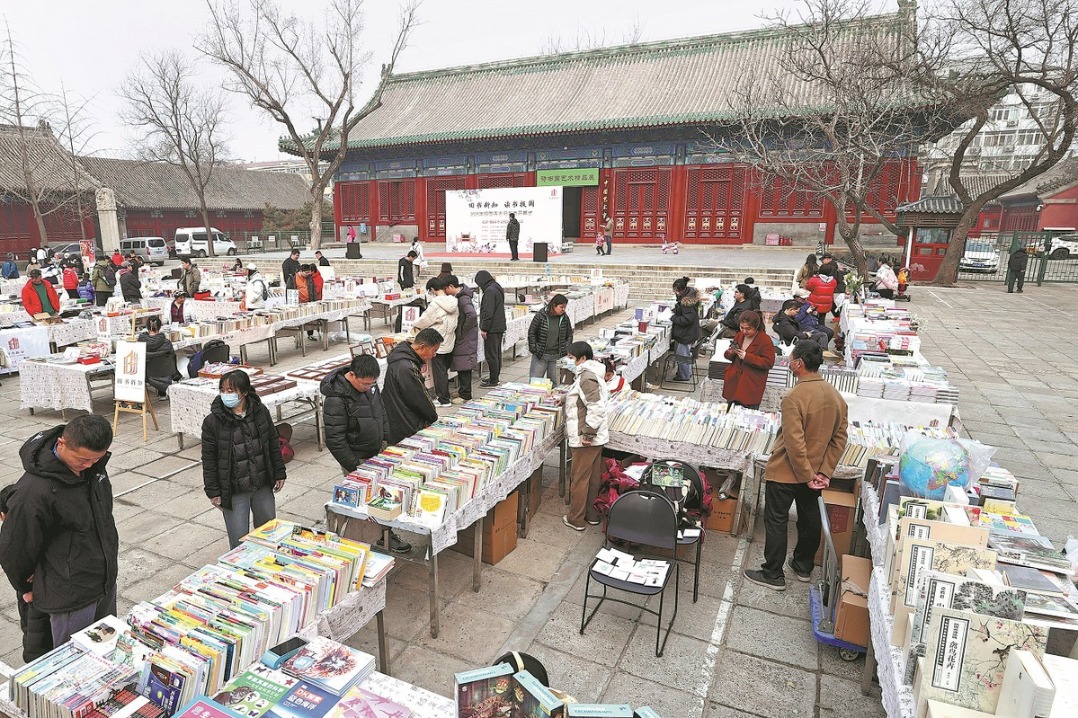Trial use of imported TCM material approved

Chinese authorities have approved the use of imported calculus bovis — a natural ingredient valued in traditional Chinese medicine for its detoxifying and calming properties — in 12 pilot regions, aiming to ease a longstanding supply shortage.
The move, announced late last month in a notice jointly released by the National Medical Products Administration and the General Administration of Customs, marks a significant policy shift. China banned the use of bovine-derived materials in traditional Chinese medicine in 2002, after the global spread of mad cow disease prompted safety concerns.
Materials such as calculus bovis, bovine bile extract and bone powder were prohibited under that ban, which had remained in place for more than two decades.
According to the new policy, calculus bovis sourced from countries and regions not subject to import bans related to mad cow disease — and that meets Chinese customs quarantine and pharmaceutical quality requirements — will be permitted for trial use in TCM production.
The 12 pilot regions are the municipalities of Beijing, Tianjin and Shanghai; the provinces of Hebei, Zhejiang, Jiangxi, Shandong, Hunan, Guangdong, Sichuan and Fujian; and the Guangxi Zhuang autonomous region. The two-year trial program takes effect immediately, and authorities said its results will inform a potential nationwide expansion.
The decision is intended to "alleviate the shortage of calculus bovis and address inadequate supplies", regulators said in the notice.
Applicants seeking to import the material must be located in pilot zones and hold valid market licenses for TCM drugs that contain calculus bovis. The ingredient must be used exclusively in TCM production and not resold, according to the notice.
In addition, license holders are required to extend their quality management systems to the overseas production process — including extraction, drying and storage — establish traceability systems for imports, and use separate equipment for manufacturing that involves the imported material.
Calculus bovis, also known as dried cattle gallstones, is an officially recognized ingredient in TCM. It is used to treat a range of conditions, including fever-induced coma, stroke, seizures, sore throat and skin infections.
China has long relied on imports to meet domestic demand for calculus bovis. Yu Zhibin, head of the traditional Chinese medicine department at the China Chamber of Commerce for Import and Export of Medicines and Health Products, said Brazil is estimated to produce about half the global supply. Other major exporters include Argentina, Chile, Uruguay, Colombia, Paraguay, the United States and Australia.
In an interview with Medicine Economic News, Yu said the new measure will help ease shortages and curb rising prices.
"Consumers are expected to reap benefits as the prices of domestic products that contain calculus bovis — such as the angong niuhuang pill, commonly used for cardiovascular issues, and pianzaihuang, a TCM formula for liver diseases — will be lowered accordingly," he said.
He added that the move may also bring renewed attention to some classic but lesser-known TCM formulas that contain the ingredient.
- Former China Eastern Airlines chairman under investigation
- Indian analyst praises China's efforts in preserving Tibetan culture
- Guangzhou unveils two new metro lines with highest automation technology
- University makes strides in traditional Tibetan medicine
- Miao Hua dismissed from top military body
- Youth urged to foster cross-Strait understanding






































